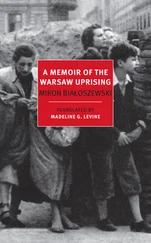Her eyes opened and she looked at me purposefully; she’d undoubtedly read that it was my job to offer an interpretation.
I looked away, however; I was sure now that Irene had read Freud very closely. The children picking yellow flowers in a meadow had appeared in a dream of his that he’d discussed in a well-known, semi-autobiographical article called ‘Screen Memories’. She was placing her own experiences into the framework of her readings on psychiatry. Whether on purpose or unconsciously, I had no way of knowing, but in either case I suspected that she intended for me to return to Freud’s discussion of Katharina and extrapolate that they faced the same problem. In a sense, she was telling me in coded language, where to look for the origins of her troubles, without directly revealing any of her family’s secrets – and in a way she could be sure I would come to understand.
‘Can you see the face of the man in the hat?’ I asked her.
‘No.’
‘Would you close your eyes and try to picture him?’
‘Of course.’ She did as I asked, but after a few seconds she shook her head. ‘I’m sorry, Dr Cohen, but I can’t tell you who he might be. I want to, but I can’t.’
She used the words tell you instead of see or recognize . A slip? Very possibly Irene knew who he was but would risk too much by revealing his identity.
I was convinced by now that she’d used Freud’s dream because she’d read his interpretation that a girl handing flowers to a man was symbolic of her losing her virginity. I suspected she’d had sex for the first time recently, and possibly with her stepfather. In that case, her guilt – at betraying her mother and threatening to destroy her family’s happiness – had brought on her self-destructive behaviour. She wanted to murder herself, but she’d transposed those violent feelings to an unidentified killer.
‘Do you know the children with you in the meadow?’ I asked, thinking they might have been other girls her stepfather had seduced.
‘No,’ she replied.
‘How old are they?’
‘They’re young – maybe ten or twelve. Like me.’
‘So you’re only ten or twelve in the dream?’
She looked inside herself again. ‘I think so,’ she said hesitantly, ‘but I’m not sure.’
Was it possible that her stepfather had violated her years earlier and had started again more recently?
‘Are the children boys or girls?’ I asked.
‘Both, I think. I’m not sure. They’re wearing yellow, so I don’t know.’
‘They’re wearing yellow?’ I asked, puzzled.
‘No, I meant that the flowers are yellow. Now I’m confused. You’re confusing me!’
‘I’m sorry. Can you identify the bigger man at the cottage who receives the flowers?’
‘No.’
‘Are he and the man in the hat Poles or Germans? Or maybe from Switzerland?’
She frowned nastily at me. Was I coming too close to unmasking her tormentor?
‘I think they’re Germans,’ she told me, ‘but I don’t know for sure. In any case, I don’t see why it matters.’
‘Maybe it doesn’t. How many times have you had the dream?’
‘A few times – I’m not sure.’
‘And how do you feel now – remembering it, I mean?’
She shrugged.
‘Well, are you glad you told it to me?’
‘Am I supposed to be?’ she snapped.
Her touchy replies made me realize that it would be best to stop now – I’d scared her with my probing and she’d tell me little more today. I downed my coffee and looked at my watch. It was eleven minutes past three.
‘Irene, for now, I only have one last question.’
‘But you’ll come back and see me?’ she asked in a tiptoeing voice. ‘You’re not angry with me?’
‘No, I’m not at all angry. And I’ll try to come back. I’ll speak to your mother about that as soon as I leave your room. But listen, Irene, I need you to promise me something or we won’t be able to talk again.’
‘What?’ she asked anxiously.
‘You must not try to take your own life while we’re working together. We must trust each other, and I won’t be able to work with you if I’m worried you might kill yourself if I say the wrong thing.’
‘Do you sometimes say the wrong thing?’
‘Of course,’ I told her, smiling at her naivety. ‘Everyone does. Though I shall try my best not to.’
I’d never admitted my failings to a patient so readily before. It seemed a change for the better, and I realized – astonished – that if I survived the ghetto, I’d be a gentler and more effective psychiatrist. Was that reason enough to go on living?
‘So do we have an agreement?’ I asked her.
‘Yes, I promise,’ she replied, and she showed me a relieved smile that convinced me she’d been waiting for me to take away her worst option from the beginning.
I stood up. ‘I’ll need your pills – the ones you took to try to end your life.’
‘Mama has them.’
‘Good.’
‘So what’s your last question, Dr Cohen?’
‘Imagine that you could tell the man in the hat something, what would it be?’
She gazed down. ‘I think I’d ask him to give me back my flowers.’
As I was leaving her room, Irene called to me. ‘Dr Cohen, I’m very sorry about what happened to your nephew. Forgive me for not saying so earlier.’
Stunned, I stammered a reply, ‘But how… how did you… I mean, who told you what happened to my nephew?’
‘Your former patient Jaśmin Makinska,’ Irene replied.
‘You know Jaśmin?’ I asked.
‘I don’t know her personally,’ Irene replied, ‘but she has been holding clandestine meetings since December – telling anyone who will listen to her about the wretched conditions in the ghetto. She’s been heroic, I think. A week ago, I went to a meeting for foreigners living here – Mama took me. Jaśmin held up a note she’d received from your niece after her son’s death, and she told the audience what had happened to him – and how you were suffering. After her talk, I started thinking that you might agree to help me.’
A patient’s last words are often what they’ve been waiting to tell you since the beginning – which meant that Irene needed to make it clear to me that she was aware that Adam had been murdered. And that she’d wanted to talk to me since learning that.
‘There’s one other thing I should have told you,’ she added. ‘In my dream, the big man who ends up with the yellow flowers we’ve picked… I know his name. I know it because the man in the hat calls out to him when he’s walking towards the cottage. It’s Jesion.’
‘And do you think his name is important?’ I asked.
‘I have a feeling it is. Sometimes it seems the key to everything.’
Irene remained in her room, though she refrained from locking the door, which seemed a hopeful sign. I paused on the gallery to measure her closing words to me against my own interest in names, and to consider, too, what she’d told me about Jaśmin, but Mrs Lanik, rushing up the staircase, drew my attention. She carried her horn-rim glasses in one hand and a book in the other. In the yearning of her eyes, I saw she feared the worst.
‘Is Irene all right?’ she asked.
‘Yes,’ I told her, ‘we had a good talk. And, most importantly, she has promised not to hurt herself while we work together.’
‘Thank you for that, Dr Cohen. What else did she tell you?’
‘She fears she is in danger.’
‘What kind of danger?’
‘As I’m sure you know, she has adjusted poorly to her new surroundings. She feels threatened. If I were you, I’d do everything in your power to make her feel loved and cared for. And protected. Even if it means going away with her for a time. Maybe even to France – to Nantes.’
Читать дальше












